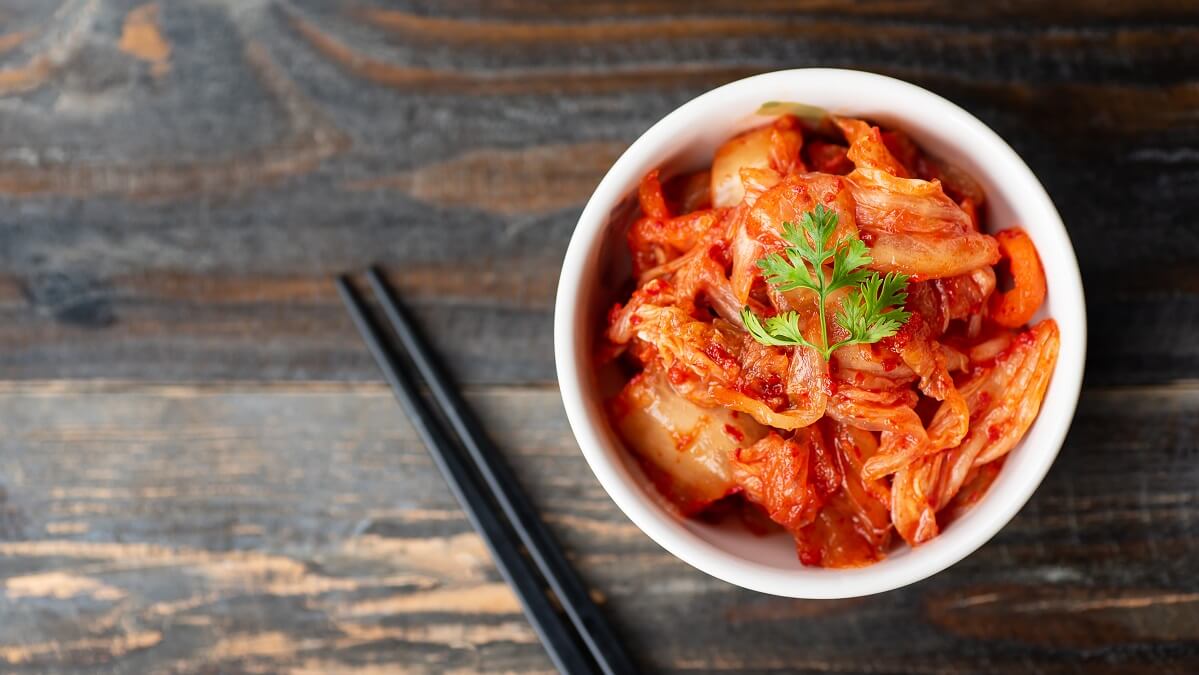There’s a new superfood in town. Well, it’s not exactly new, but its superpowers are new to me. What is this magical dish? Kimchi. And it might be just the food I’ve been searching for.
If you’re anything like me, (late 50s and heavier than I should be), finding healthy foods is important to you. (Not that I’m great at eating once I find them but, hey, one thing at a time!) I’m on the lookout for foods that will help me get back to a healthier weight. But I’m also after ones that might help slow down the ageing process, too.
I’m not necessarily looking to replicate Kate Tolo’s quest for immortality, but I’d like to be able to participate in sports for as long as possible. And maybe look just a little younger than my actual age.
So any foods that can help me achieve that or a bit of weight loss would be great. Even better, a food that does both. Does such a food exist? It seems it does!
Kimchi – the ‘K’ that might be more special than Special K
I have to be honest, despite having heard of kimchi, I have until now never tried it. In fact, I wasn’t even sure what it was. But that’s all changed now. I’ve tried it and I love it, and it could become a big part of my future life.
For those as ignorant as I have been, kimchi is a traditional Korean banchan. A ‘banchan’ is a side dish, usually served alongside cooked rice. It consists of salted and/or fermented vegetables and a wide variety of seasonings.
The base vegetable is usually napa cabbage or Korean radish, while the seasonings take in a vast range of options. These include (but are not limited to) gochugaru (Korean chili powder), spring onions, garlic, ginger, jeotgal (salted seafood).
The good news is that whichever way you have it, there’s a strong chance it’s having a positive health effect. Research has shown that there’s a potential link between kimchi and a reduction in obesity.
Be careful, though – that link is related to how much kimchi you have. The research suggests up to three daily servings of kimchi related to an 11 per cent lower prevalence of obesity. But five or more servings actually increases your likelihood of obesity.
Meanwhile, the fermented vegetable aspect of kimchi – be it cabbage or radish – potentially has an anti-aging effect.
But wait, there’s more!
A link between kimchi and reduce symptoms of irritable bowel syndrome has also been postulated. Further to that, the ‘good’ bacteria found in kimchi is linked to overall improved gut health.
Is there a downside to kimchi? Perhaps just one. Kimchi is generally high in salt, so small portions are the recommended option. That’s probably why the Koreans traditionally have it as a banchan, not a main meal.
If you haven’t tried kimchi, I’d suggest giving it a go. I have now had it once, but it will not be once for long!
Have you tried kimchi? What other Korean dishes would you recommend? Let us know via the comments section below.
Also read: Seven food trends you’ll see in 2024
Health disclaimer: This article contains general information about health issues and is not advice. For health advice, consult your medical practitioner.


Because salt is SO good for you?